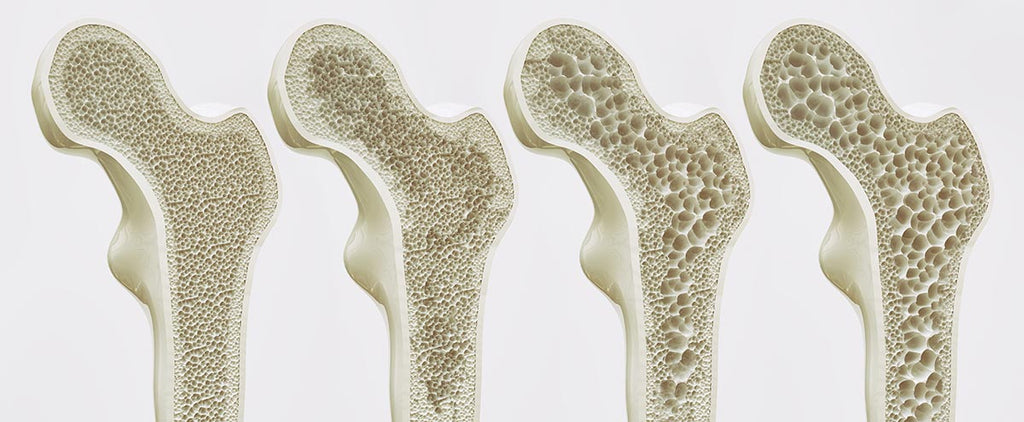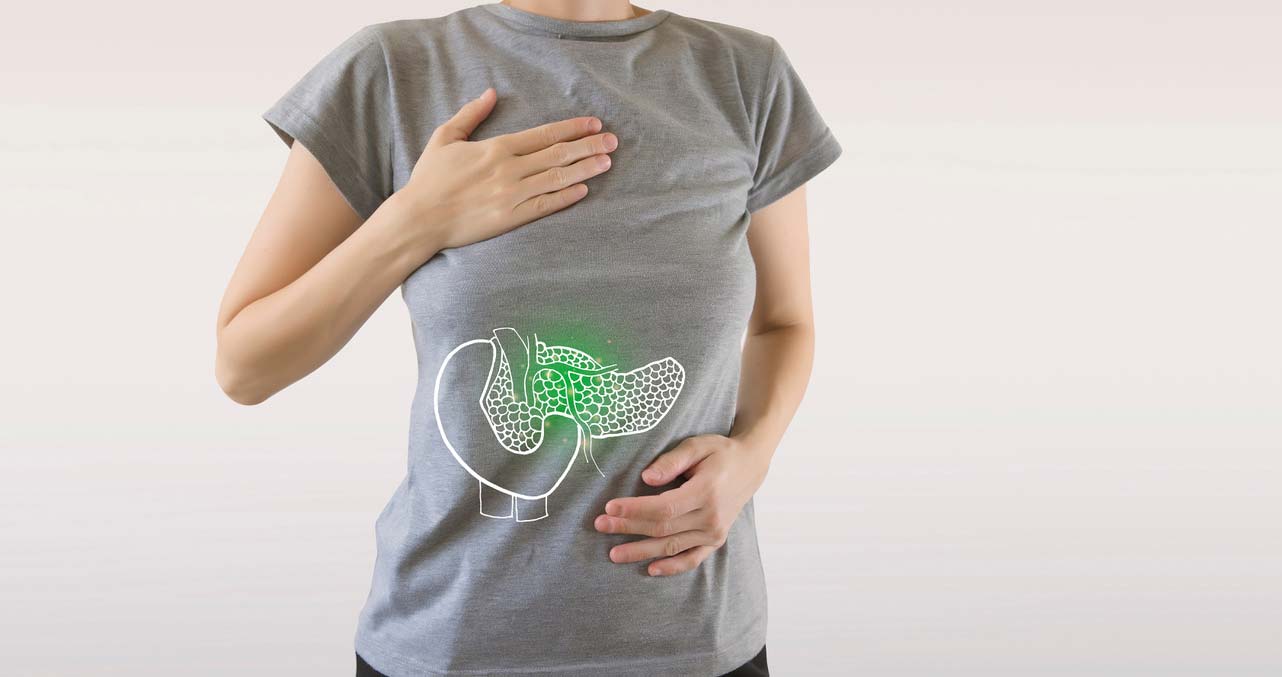Osteoporosis and Bone Health: Are You at Risk?

There are no bones about it: osteoporosis is crushing. Someone with advanced osteoporosis may break a bone by a simple action, such as bumping into something or even sneezing. The weakening of bones may shatter them physically and psychologically.
In the United States, osteoporosis affects over 10 million Americans who are 50 and older. White women were once considered the highest at-risk group. However, new research shows that Hispanic women have the same or higher risk for osteoporosis than white women.
Osteoporosis cases are projected to increase dramatically over the next decade. Read on to learn how you can prevent osteoporosis by taking care of your bones today.
What is Osteoporosis?
Osteoporosis is a bone disease characterized by progressive bone weakening. The word “osteoporosis” literally means “porous bones” in Latin. Bones are made of living tissue that continually evolves: old bones break down, and new bones form. In osteoporosis, the bone loss rate exceeds the bone formation rate, resulting in decreased bone density and strength.
Osteoporosis increases the risk of fracture, resulting in pain, disability, and psychological effects. The most common fractures include the spine, hip, and wrist. Recovery often requires surgery and long-term rehab. Osteoporosis fractures may result in permanent pain, numbness, weakness, and the inability to perform daily tasks. It may also lead to anxiety, depression, and a loss of self-confidence.
The good news is that osteoporosis is preventable and treatable. Individuals can reduce their risk of bone decay and fractures by taking steps to maintain bone health.
What Causes Osteoporosis?
Osteoporosis is believed to be caused by nutritional deficiencies, hormonal changes, and lifestyle choices. The risk of developing osteoporosis is influenced by a combination of genetic, environmental, and behavioral conditions. Some of the contributing factors to the loss of bone density are:
- Aging: Bone mass and density naturally decrease as people age, making bones more susceptible to fractures.
- Hormonal changes: Estrogen and testosterone play essential roles in maintaining bone density. Women experience a rapid loss of bone mass in the first few years after menopause when estrogen levels decline.
- Nutritional deficiencies: Calcium and vitamin D are essential for bone health. A lack of these nutrients can contribute to weakened bones.
- Medication: Long-term use of corticosteroids, thyroid hormones, and some anticonvulsant medications can increase the risk of osteoporosis.
- Medical conditions: Certain conditions, such as hyperthyroidism, celiac disease, and kidney disease, can contribute to bone loss.
- Lifestyle factors: Lack of physical activity, smoking, and excessive alcohol consumption can all contribute to weakened bones.
Signs and Symptoms of Osteoporosis
Osteoporosis does not cause many noticeable signs or symptoms in the early stages. In fact, a fracture may be the first red flag. As the condition progresses, signs and symptoms may include:
- Back pain (caused by a fractured or collapsed vertebra)
- Loss of height (from compression fractures in the spine)
- Rounded shoulders and stooped posture (dowager’s hump)
- Bone fractures from minimal trauma (especially in the hip, wrist, or spine)
- Decreased mobility and flexibility due to pain or stiffness in the joints
At-risk individuals should receive regular bone density tests. This will help detect the condition early and prevent fractures from occurring. Several common risk factors of osteoporosis are:
- Age: 65 and older
- Gender: Women
- Family History: Genetics
- Low body weight: A BMI of less than 18.5
- Medical conditions: Hyperthyroidism, celiac disease, inflammatory bowel disease, and kidney disease
- Lifestyle factors: Smoking, excessive drinking, and a sedentary lifestyle
Why does Osteoporosis Affect More Women than Men?
Osteoporosis affects more women than men because women have a lower peak bone mass and lose bone mass more rapidly as they age. Hormonal changes during menopause accelerate bone loss in women. As estrogen levels decline, so does bone density. Conversely, men do not experience the same sudden hormone shifts, which may explain why they have a lower risk of developing osteoporosis.
Additionally, women generally have smaller and thinner bones than men. Women also tend to live longer than men and have longer exposure to the risk factors for osteoporosis. While osteoporosis is more common in women, it’s important to note that men can also develop the condition, especially as they age or if they have certain medical needs.
How to Prevent Osteoporosis
Preventing osteoporosis requires a combination of lifestyle changes and medical interventions. Increasing bone-fortifying nutrients, staying active, and implementing preventative care can greatly reduce the risk of developing the condition. Here are a few tips that anyone can implement to improve bone health:
- Get enough calcium and vitamin D: Calcium and vitamin D are essential for bone health. Good sources of calcium include dairy products, leafy green vegetables, and fortified foods. Vitamin D can be obtained from sunlight and supplements.
- Exercise regularly: Weight-bearing and resistance exercises can help maintain bone density and strength. Consider walking, jogging, dancing, and weightlifting.
- Avoid smoking and excessive drinking: Smoking and alcohol consumption can contribute to bone loss and increase the risk of fractures.
- Maintain a healthy weight: Being underweight can increase the risk of osteoporosis while being overweight can increase the risk of falls and fractures.
- Take steps to prevent falls: Older adults should remove tripping hazards and wear appropriate footwear to reduce the risk of falls and fractures.
- Get regular bone density tests: Regular testing can help detect osteoporosis early, when it is most treatable.
- Talk to your healthcare provider: Those at risk of osteoporosis should speak with their doctor about ways to take precautions and maintain bone health.
Best Supplements for Bone Health
Taking supplements can be a great way to support your bone health. Some of the best bone health supplements include calcium, vitamin D, magnesium, and vitamin K. Calcium is essential for strong bones, while vitamin D helps your body absorb calcium properly. Magnesium helps regulate calcium levels, and vitamin K plays a role in bone metabolism. Our top bone health supplements for people of all ages are:
Osteo Complex: A combination of calcium, magnesium, vitamins, and leafy greens to support healthy bones and aging. The ingredients also support women’s health throughout several stages of life.
Calcium+: Promotes healthy bones, teeth, muscles, and joints with a blend of calcium, magnesium, vitamin D3, and vitamin K2.
Collagen+: The perfect additional supplement to support bone health is comprised of collagen, vitamin C, and bioflavonoids. Taking collagen may promote improved bone density and reduced risk of bone fractures in postmenopausal women. Collagen also promotes healthy skin, hair, and nails and supports healthy aging.
Your Hispanic American Health Store
Health Hispanica® is a Hispanic-American health store specializing in supplements from Hispanic-American-owned brands such as Natura-Genics® and Yerba Farma®. We strive to provide quality and innovative supplements at fair prices and educate our clients and community on healthy living.
The statements above have not been evaluated by the Food and Drug Administration (FDA). This product is not intended to diagnose, treat, cure, or prevent any disease.



Leave a comment